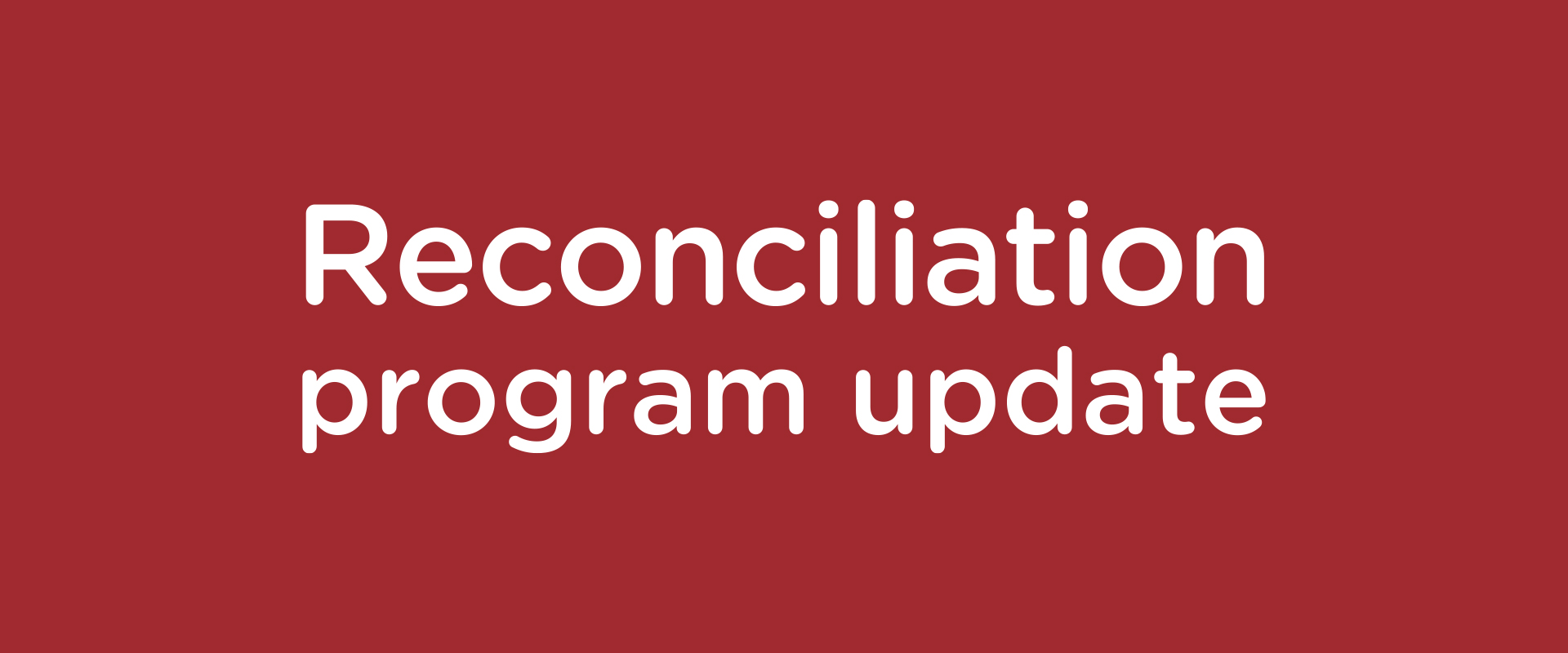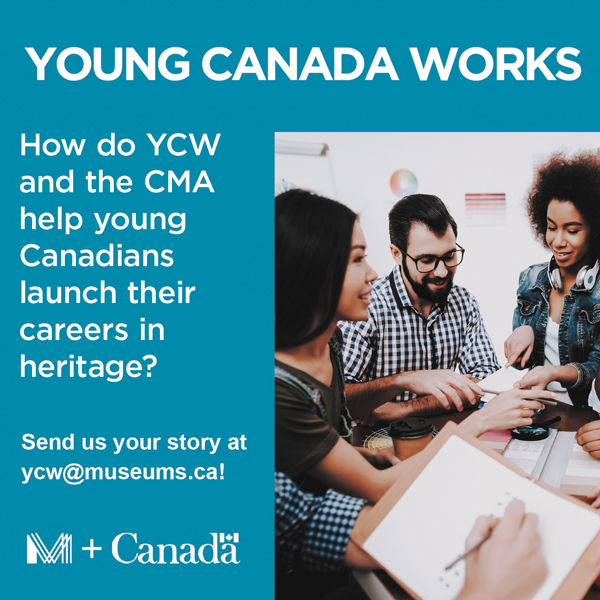
Reconciliation program update
SM Leduc
The CMA’s Reconciliation Program is a response to the Truth and Reconciliation Commission of Canada (TRC)’s Call to Action #67, “We call upon the federal government to provide funding to the Canadian Museums Association to undertake, in collaboration with Aboriginal peoples, a national review of museum policies and best practices to determine the level of compliance with the United Nations Declaration on the Rights of Indigenous People and to make recommendations.”
The CMA is working closely with its Reconciliation Council and other stakeholders across the country to collect feedback, identify key issues, and ultimately produce and disseminate, in the fall of 2021, a recommendations report and learning tools for the inclusion and representation of Indigenous communities within museums and cultural centres.
The CMA’s Reconciliation Program is made possible by Government of Canada funding.
The November/December 2019 issue of Muse offered an overview of the Program, with the intention of launching a national online survey on reconciliation. Since that time — from November 2019 to January 2020 — the CMA has concluded its survey to learn how museums and related institutions engage with and represent Indigenous history, culture and belongings and their policies and practices surrounding Indigenous collections. How museums engage with communities and key challenges and questions museums may have with respect to Indigenous relations and representation also factored in.
What we heard
Survey responses were collected from Indigenous and non-Indigenous institutions providing insights on a wide variety of subjects related to awareness, strategic planning, management and capacity development; here is some of what we heard.
Many respondents reflected on the positive approaches and changes collaboration brought, including the dynamic relationship building and partnerships with local communities which necessitated innovative and novel ways of doing. Several shared stories of how their interactions made them more aware of what could be considered silenced history and how this knowledge and understanding would be carried forward into strategic planning and internal reviews on policies and procedures.
Respondents most frequently cited two main issues when embarking on reconciliation-based activities:
Lack of funding
Many said they felt limited in their funding and resources to make the long-term and sustainable changes to address Indigenous heritage in their institutions. One respondent said, “The biggest challenge we face is lack of funding which means that our work with Indigenous communities is project-based rather than ongoing.”
Another museum related, “The public comes to us to be the authorities on the topic, but we’re not and the resources are not available.”
More specifically, a lack of funds for related expenditure items like Elder honourariums or travel and costs associated with inviting community experts to help identify Indigenous belongings in their institutions’ collections, was also identified.
Relationship building
Apprehension on how to approach Indigenous experts and community members, including understanding cultural protocols, was a topic of concern for many non-Indigenous respondents. Several museums were cognizant of how the ripple effect of an increased demand for reconciliation initiatives and Indigenous knowledge and partnerships placed significant strain and challenges for Indigenous communities and cultural entities or centres to respond. This was a concern also shared by the Indigenous institution respondents, who offered similar comments, noting limited capacity to participate meaningfully.
In addition to their participation concerns, Indigenous institutions also noted some additional barriers to progress, such as colonial mindsets and lack of linguistic considerations. Indigenous institutions observed that non-Indigenous museums often operate and approach partnerships using frameworks that are not inclusive or reflective of Indigenous world views.
This includes simple things non-Indigenous people and institutions may take for granted, such as language. With Indigenous language revitalization playing an increasingly important role in cultural policy, some institutions remarked that syllabics are often not included as options or compatible in forms, databases, or documents, thereby having to rely on a romanisation of name places and proper names.
Nevertheless, all institutions expressed the positive impact of meaningful community engagement, with one commenting that the area served by their museum is, “…highly integrated between Métis, First Nations and non-Indigenous settlers so we do not consider interactions between communities to be ‘challenges’ but rather opportunities for cultural exchange.”
What comes next?
The intention of the survey was to provide an environmental scan of institutions across the country that are endeavouring to engage more deliberately with Indigenous Peoples and communities. To help contextualize what we heard in the survey, the CMA has partnered with Indigenous cultural organizations and provincial and territorial museum association colleagues to help identify places and people to speak with as we embark on the next phase of this Program.
In the coming months, the CMA will conduct cross-country engagements that will include site visits, seek guidance from Elders and Cultural Knowledge Keepers, interview museums leaders, organize talking circles and roundtables, and learn from retired museums professionals.
We want to express our many thanks to the institutions who took the time to respond to the survey and to the individuals who are already demonstrating support for this work. In the spirit of inclusion, we hope that we can count on your voices as museum professionals if called upon to offer your insights.
If you did not have an opportunity to complete the survey but would like to discuss some of the challenges your institution is facing, or share what your museum is doing for reconciliation, you can get in touch with the CMA’s Reconciliation Museologist, SM Leduc at smleduc@museums.ca.
To learn more about the CMA’s Reconciliation Program visit www.museums.ca/site/reconciliation and see our regular updates in upcoming issues of Muse and CMA News.

